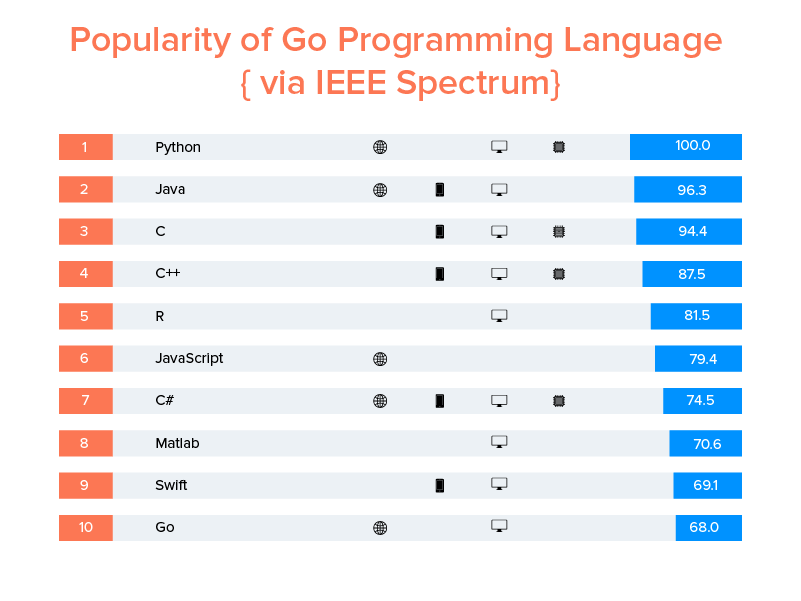
If you like the functional style of programming, though, you’ll find a lot more facilities for it in Rust, because Rust has a lot more facilities than Go in general. Instead, while both Go and Rust have features associated with functional and object-oriented programming, they’re pragmatic languages aimed at solving problems in whatever way is most appropriate, rather than forcing you into a particular way of doing things. Neither are primarily functional languages (like Scala or Elixir, for example), and neither are exclusively object-oriented (like Java and C#). Learning either Go or Rust today will be a sound investment of your time and effort. They’ve both been around for many years, and will continue to be widely used for years to come. Rust and Go are also both powerful, scalable general-purpose programming languages, which you can use to develop all kinds of modern software, from web applications to distributed microservices, or from embedded microcontrollers to mobile apps.īoth have excellent standard libraries and a thriving third-party ecosystem, as well as great commercial support and a large user base. This also makes both Rust and Go programs extremely fast in comparison to interpreted languages. They’re both compiled languages, which means your programs are translated directly to executable machine code, so that you can deploy your program as a single binary file unlike interpreted languages such as Python and Ruby, you don’t need to distribute an interpreter and lots of libraries and dependencies along with your program, which is a big plus. Rust and Go deal with this problem in different ways, but both aim to be smarter and safer than other languages about managing memory, and to help you write correct and performant programs. It’s become clear over many decades of using older languages such as C and C++ that one of the biggest causes of bugs and security vulnerabilities is accessing memory unsafely or incorrectly.

Go is an open-source programming language that makes it easy to build simple, reliable, and efficient software.īoth Go and Rust belong to the group of modern programming languages whose priority is memory safety. Rust is a low-level statically-typed multi-paradigm programming language that’s focused on safety and performance. What are some of the common goals of both languages? Rust and Go have a lot in common, which is one reason you often hear them mentioned together. With that said, let’s take a closer look at the two languages. While they’re very different in syntax and style, both Rust and Go are first-class tools for building software. I’ll also try to give a flavour of the essential nature of both languages (the Tao of Go and Rust, if you like).

In this article, I’ll try to give a brief overview of where I think Go is the ideal choice, and where I think Rust is a better alternative. Each language is optimised for different things, so your choice of language should be determined by what suits you and the problems you want to solve with it. But that really makes no sense every programming language represents a set of trade-offs. You may have read articles and blog posts aiming to convince you that Go is better than Rust, or vice versa. They’re modern, powerful, widely-adopted, and offer excellent performance. Rust and Go are both awesomeįirst, it’s really important to say that both Go and Rust are absolutely excellent programming languages. Which is better, Rust or Go? Go or Rust? Which language should you choose for your next project in 2023, and why? How do the two compare in areas like performance, simplicity, safety, features, scale, and concurrency? What do they have in common, and where do they fundamentally differ? Let’s find out, in this friendly and even-handed comparison of Rust and Golang.


 0 kommentar(er)
0 kommentar(er)
